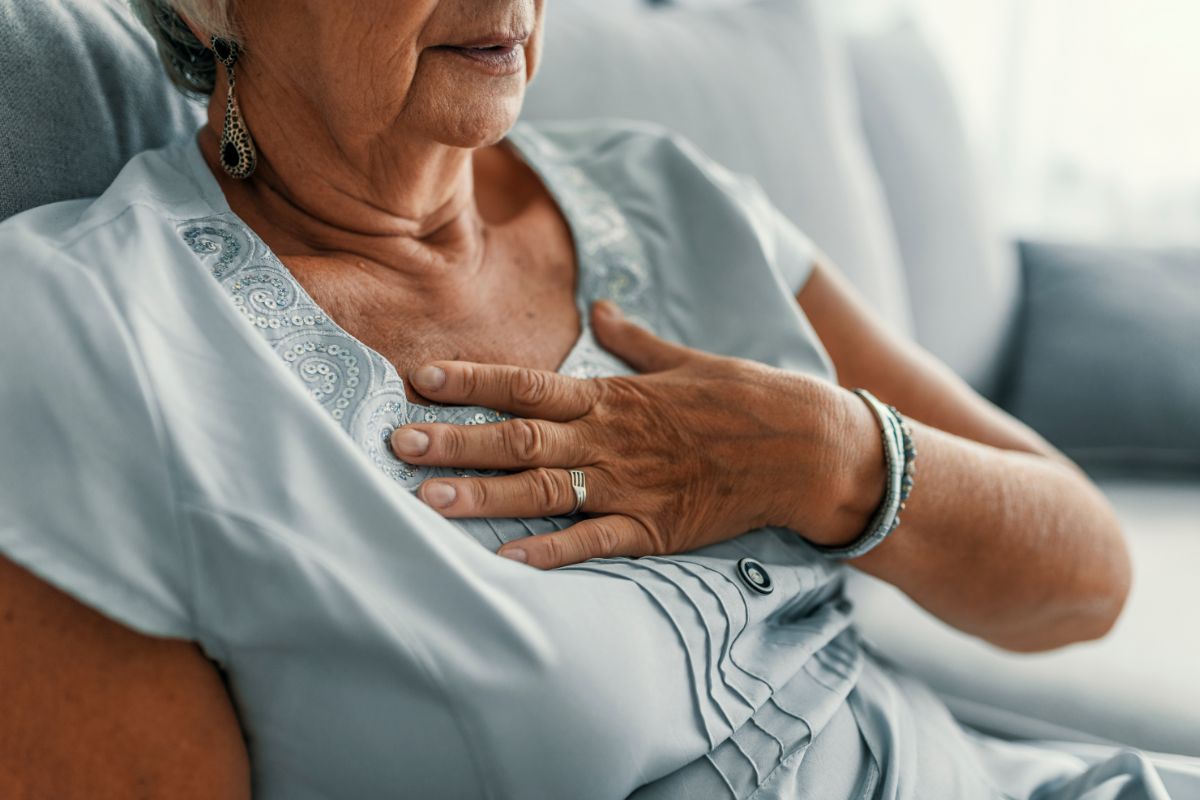Heart disease is currently the leading case of death in the US, taking the lives of 1 in 7 people.

It is a scary condition to live with, and it is important to be as knowledgeable on this subject as possible.
In this article, we will be discussing the life expectancy of a person with heart disease, and how to fight these odds.
What Is Heart Disease?
The medical term ‘heart disease’ is broadly used for a number of conditions that affect the heart’s structure, and how it functions compared to a healthy person’s.
It can occur in any person at any age, and can have many causes.
While any person can be at risk of getting heart disease at any point in life, it has been observed that males in their mid-fifties onwards are more likely to develop these conditions.
Past the age of 55, the risk of heart disease in males increases each year, and by age 85, around 8% of men will suffer from it.
The risk is also prevalent in females, but it does not typically begin increasing drastically until they reach 60s, which is around 10 years later than males.
There have been many links between heart disease and menopause.
How Does Heart Disease Decrease Life Expectancy?
One of the main concerns that comes with heart disease is the risk of having a cardiac event, including a stroke, cardiac arrest, or a heart attack.
Each of these medical conditions can cause instant death, and even in the cases that the person survives, there is a possibility that their life expectancy may drop significantly following the event.
Overall, women can expect to survive 7.9 years after the commencement of heart disease, while men can expect to live 6.7 years.
Life Expectancy Following A Heart Attack
Heart attacks, specifically, are a great concern when it comes to having heart disease.
A heart attack occurs when the main arteries surrounding the heart become blocked.
The heart muscle is deprived of a crucial supply of blood, and if left unaddressed, it will begin to shut down from a lack of oxygen.
Permanent damage to a person’s body can occur when they have a heart attack, specifically.
If blood has not been supplied within the first 90 minutes following a heart attack, irreparable damage might occur, and the heart’s ability to pump adequately will eventually be lost.
Heart attacks are much more common in older people, especially those who are 65 years or older.
Furthermore, those who have already had a heart attack are more likely to have another within the next five years.
A heart attack can lower the average’s person’s life expectancy by 8-10%.
The odds are somewhat lower if the individual already suffers with heart disease, since the individual is already at risk of having blocked arteries surrounding the cardiac area.
Signs Of A Heart Attack
The treatment management of heart disease has improved substantially in the last couple of generations, but the rate of survival and recovery depends on how soon the patient reaches out for medical help following the development of symptoms.
These are some of the first signs of a heart attack that everyone should be aware of.
Chest Pain/Discomfort
This is the symptom that most people are aware of when it comes to heart attacks. It is also one of the most common symptoms a person will experience.
The pain itself may only last a few minutes or so, and others will only experience a brief discomfort rather than a noticeable pain.
Those who have suffered from heart attacks have reported experiencing a tightness in their chest, as well as pressure or ‘squeezing’.
Left Arm, Neck, And Back Pain/Discomfort

This is a set of symptoms that is often experienced by females, but it has been reported in males, too.
A huge telling sign that you are having a heart attack is if your left arm, along with the left side of your back and neck, become painful.
This discomfort has been described as splitting, or scorching.
Shortness Of Breath
Due to the arteries being clogged up, it will become more difficult for a person to breathe during a heart attack.
The shortness of breath can sometimes disappear once the person has laid down, or even when they fall asleep.
This leads the person to think that there’s nothing to worry about. This can be extremely dangerous, and may lead to death during their sleep.
Dizziness
The lack of blood flow around the cardiac area can also cause lightheadedness.
This is a telling sign, if paired with the aforementioned symptoms, that you are having a heart attack.
This may also be paired with an irregular heart beat, sudden sweating, and seeing flashing lights when standing up.
Severe Fatigue
Extreme exhaustion, also known as fatigue, is one of the less obvious signs of a heart attack, but it should never be overlooked.
The damage caused by the heart attack itself is the main source of weariness.
Scar tissue forms over damaged heart muscle, reducing the pumping capacity in the injured area.
How To Improve Life Expectancy With Heart Disease
If you suffer from heart disease, there are ways that you can continue to keep yourself as healthy as possible.
Following these suggestions may increase your life expectancy, and lower your chances of suffering from heart attacks.
Keeping Active
Doing any form of constant physical activity throughout the day, such as walking, cycling, or swimming, is one of the best methods to increase your life expectancy.
Avoiding Smoking
Everybody knows that smoking is bad for you, but it is particularly bad if you have heart disease. Cigarettes can increase your risk of having a heart attack.
Lowering Cholesterol
If you have heart disease, you should strive to lower your cholesterol by eating a healthier diet, since this type of fat is prone to obstructing blood vessels.
Taking Suitable Medication
Don’t forget to take your prescribed heart medication daily to keep everything under control.
Final Thoughts
As a rule, women should expect to live an average of 7.9 years following the onset of heart disease, while men can expect to live an average of 6.7 years.
While women are more likely than males to outlive this disease, having a heart attack reduces the typical person’s life expectancy by 8-10%, male or female.
It is important to remember the symptoms of a heart attack so that it can be treated immediately.
By following a healthy lifestyle, and being aware of dangerous symptoms, you can fight to beat these odds and live a long, happy life.
We hope you found this article helpful.
- Understanding Male Reproductive Health: A Complete Guide - February 2, 2025
- Simple Healthy Skin Habits for Radiant Skin - December 6, 2024
- Unlocking the Connection Between Nutrition and Mental Health - December 3, 2024








